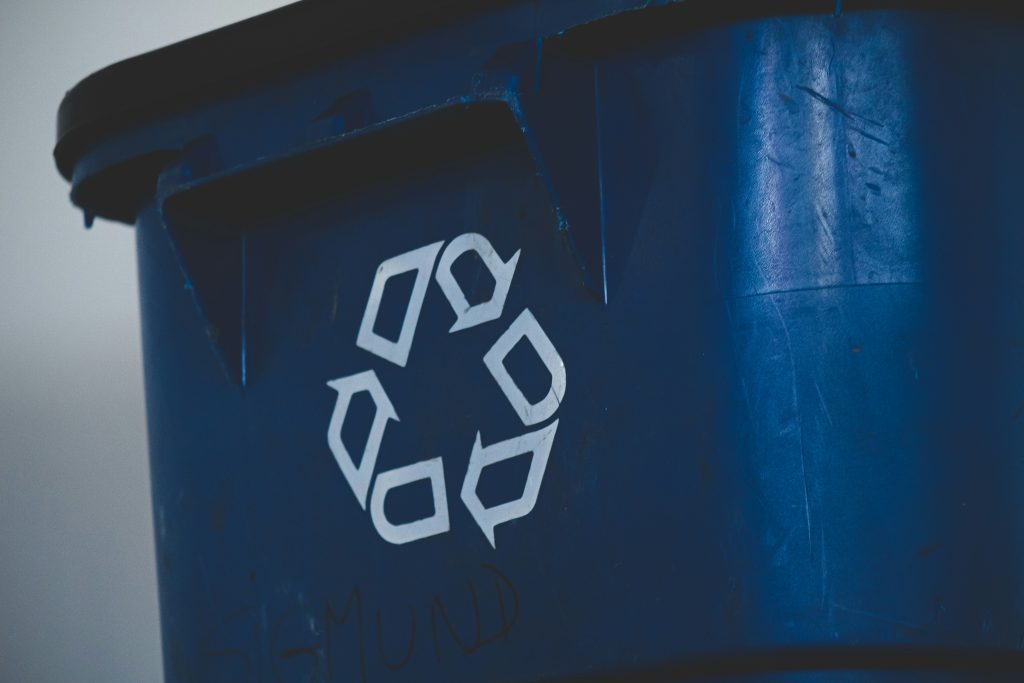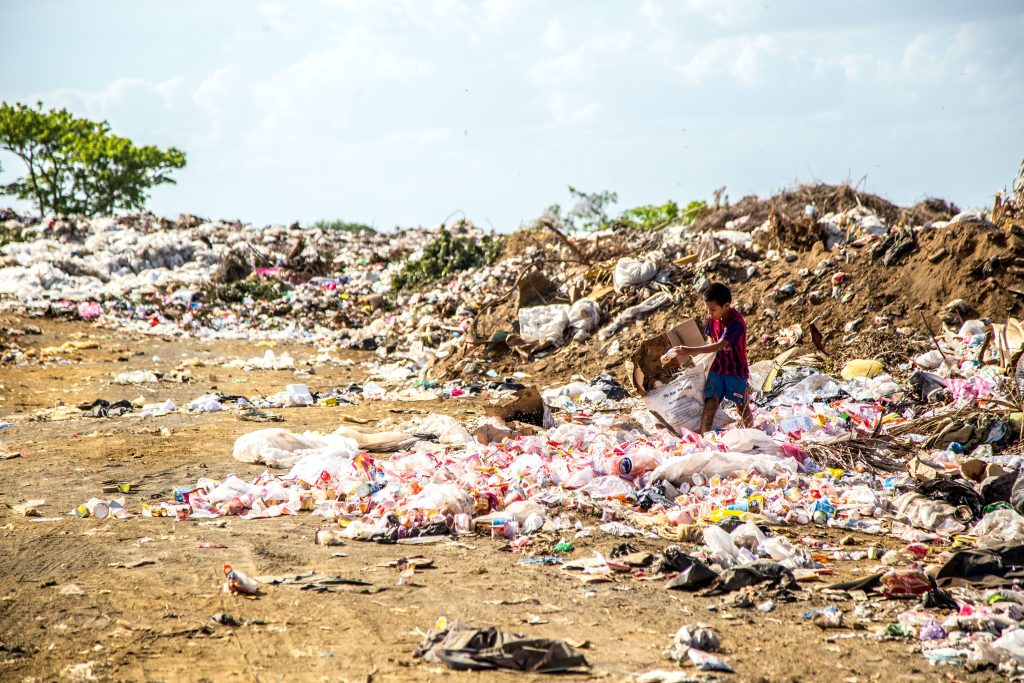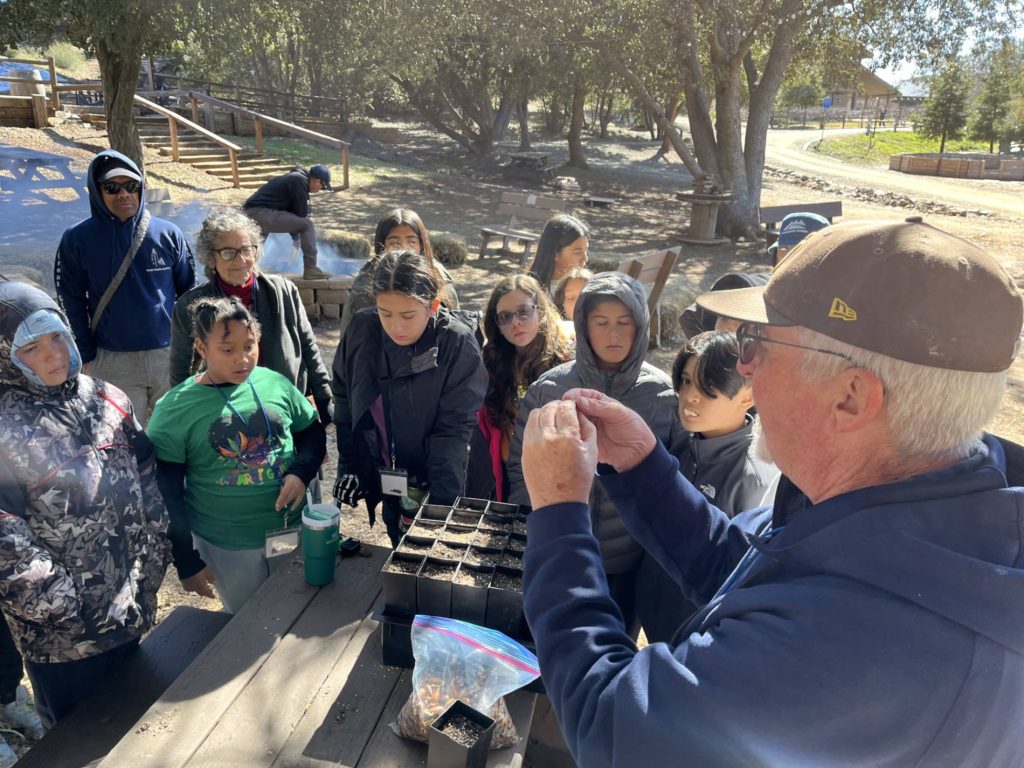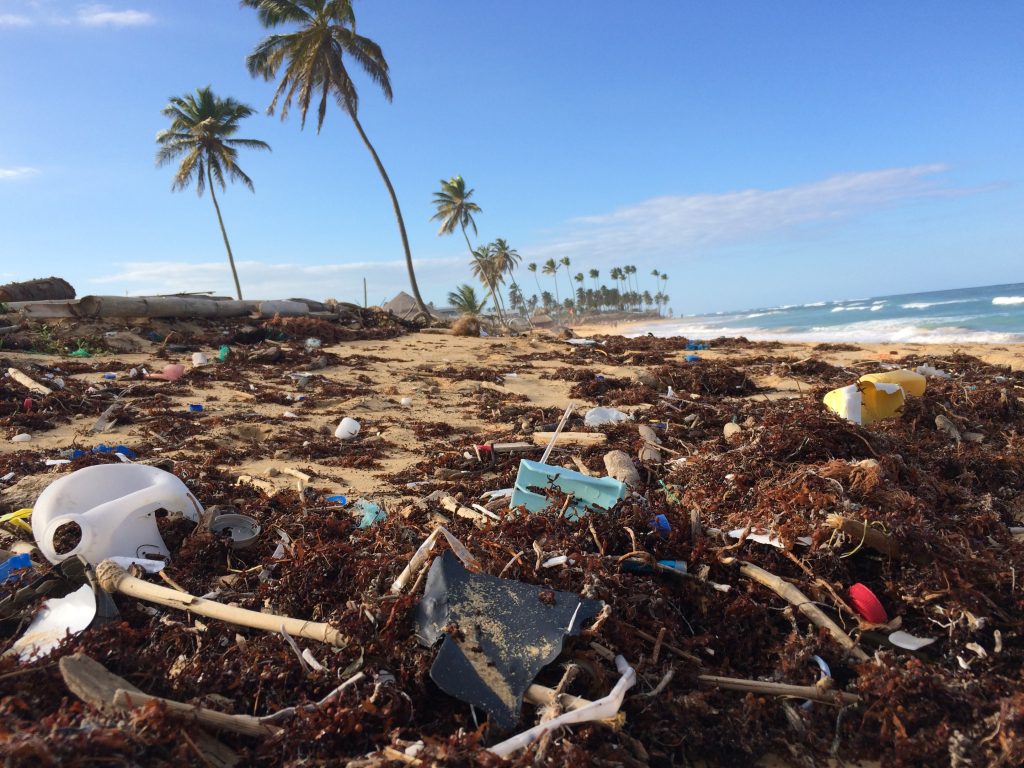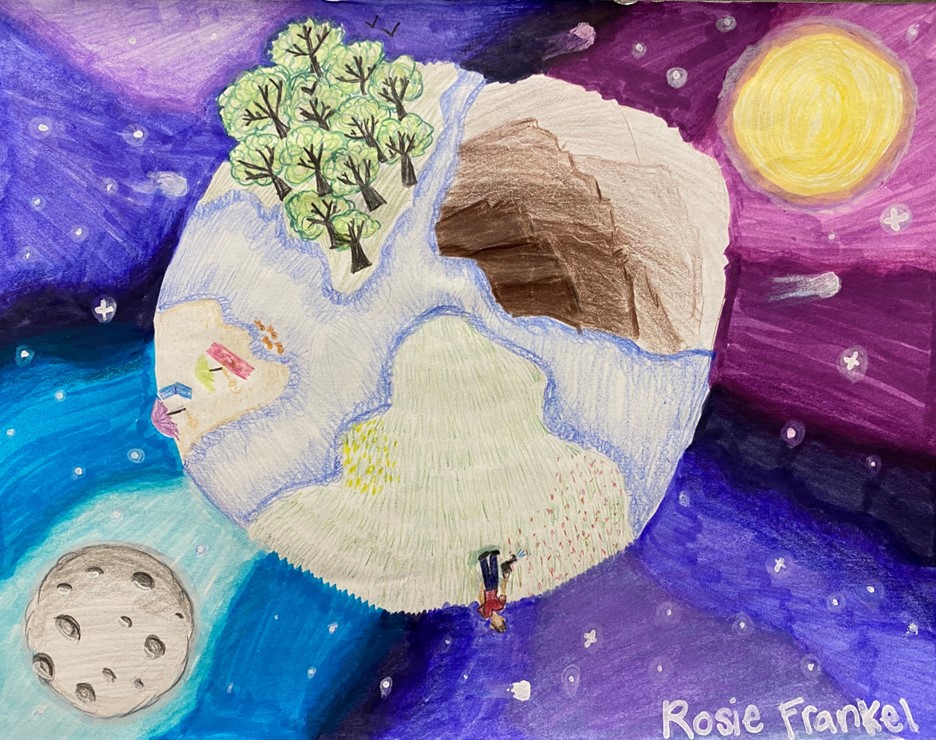By Christina Bagaglio Slentz
Each year, Lent offers us the opportunity to change our habits by sacrificing something or by committing to doing something positive. The real challenge, however, comes with Easter as we are invited to new life: Do we return to our old ways, or do we become something more? And perhaps most importantly, how does this change our relationship with Jesus, who has redeemed us?
Creation Care Ministry is calling all Catholics in our diocese this year to give up or reduce use of what are known as “single-use” plastics. We’re hoping that this habit sticks! How might this transform your relationship with the Lord? Read on to learn about the harmful impact plastic pollution is having on the most vulnerable and how your actions can make a difference while enriching your faith life.
Pervasive Plastics and the Limits of Recycling
Let’s first acknowledge that plastic, a human-made material, was created to do good, and there are still many good things made of plastic, such as airbags, medical equipment and bike helmets. Unfortunately, more than half of the plastic produced is used only one time, hence the name, “single-use plastics,” or SUPs.
While “rigid” plastic labeled with the “chasing arrow” symbol is accepted by many waste-collection services in the San Diego region, much of the recycling process does not happen here. Instead, about one-third of U.S.-collected plastics is exported, predominantly to developing Asian markets, where this work is not well regulated. The result is overflowing landfills, which pollute the water and release harmful gases into the air. These landfills are overtaking the marginalized places where the poorest in these countries struggle to live.
According to the Organization for Economic Cooperation and Development, plastic use has more than doubled since 2000, with only 9% of plastic waste recycled in 2019. Some 19% was incinerated, a process that releases greenhouse gases as plastic is made from fossil fuels. While 50% went to “sanitary landfills,” the remaining 22% was dumped into uncontrolled sites or sent to informal burn pits, jeopardizing the health of those living nearby. On many of the small island states, where plastics are dumped, expanding landfills combine with sea-level rise, eliminating livable terrain and pulling trash out into our oceans.
As we shift away from oil and gas, fossil fuel companies are expected to increase their plastic production. Experts predict plastic waste that finds its way into our waterways will double and possibly triple by 2040. When plastic breaks down in the ocean, marine life is endangered, often becoming entangled in the pieces. As this process continues, plastic becomes even more pervasive as decomposition takes over 400 years, causing significant damage to God’s creation. Scientists have found microplastic remnants in our soil, water, air and even humans. In fact, in June 2022, the National Institute of Health published a study finding microplastics in human breastmilk, affecting the lives of our tiniest sisters and brothers!
Purchasing Is a Moral Act
Because plastic decomposition takes almost half a millennium, there really is no such thing as throwing plastic away — it must go somewhere. Recognizing some plastic has become quite necessary and some plastic is NOT recyclable, every purchase we make that includes plastic carries a consequence, calling for careful discernment. Pope Benedict XVI argues, “It is good for people to realize that purchasing is always a moral—and not simply economic—act. Hence the consumer has a specific social responsibility, which goes hand-in-hand with the social responsibility of the enterprise.”
There is a nobility in the duty to care for creation through little daily actions, and it is wonderful how education can bring about real changes in lifestyle. Education in environmental responsibility can encourage ways of acting that directly and significantly affect the world around us, such as avoiding the use of plastic and paper, reducing water consumption, separating refuse, cooking only what can reasonably be consumed, showing care for other living beings, using public transport or carpooling, planting trees, turning off unnecessary lights, or any number of other practices. All of these reflect a generous and worthy creativity that brings out the best in human beings. Reusing something instead of immediately discarding it, when done for the right reasons, can be an act of love which expresses our own dignity.”
-Pope Francis, “Laudato Si’”
‘The Story of Plastic’ Film Screening
Join us for this Emmy award-winning movie March 6, from 6 to 8 p.m., at the diocesan Pastoral Center, 3888 Paducah Drive, San Diego 92117. We’ll provide drinks and popcorn! Register for this free event here.
What Can You Do?
This Lent, RE-volutionize your habit, starting simply with single-use plastics. Here are some suggestions for giving up SUPs:
- REturn to old ways: Much of what we can do is what our grandparents and great-grandparents did all the time!
- REfuse single-use plastics whenever possible. Take cloth bags to the grocery store for bagging produce.
- REduce purchasing plastic items or items with excessive plastic packaging. Try to buy whole foods and cook from scratch.
- REuse when you can’t avoid.
- REpeat this message to your friends and family.
- REsist SUPs in restaurants or other establishments and explain your preference for non-plastic items such as to-go boxes, straws, cups, etc.
During Lent, we are called to REpent, or REthink. We cannot change the past, but we are always called to become something new. Pope Francis says when we do these little daily actions “for the right reasons,” out of love for our brothers and sisters and in an effort to care for the gift of creation, we demonstrate “an act of love which expresses our own dignity.” Taking on a sacrifice or special commitment during Lent is meant to draw us closer to Jesus by inviting Him into our everyday life. Why not use the pervasiveness of plastic as a ubiquitous reminder of our call to be in relationship with our Lord?
Send pictures of your family or parish taking on this “Giving Up SUPs Challenge” to cslentz@sdcatholic.org. We will post them on our Facebook and Instagram accounts.
Christina Bagaglio Slentz serves in the Diocese of San Diego’s Office for Life, Peace and Justice as associate director for Creation Care Ministry.





